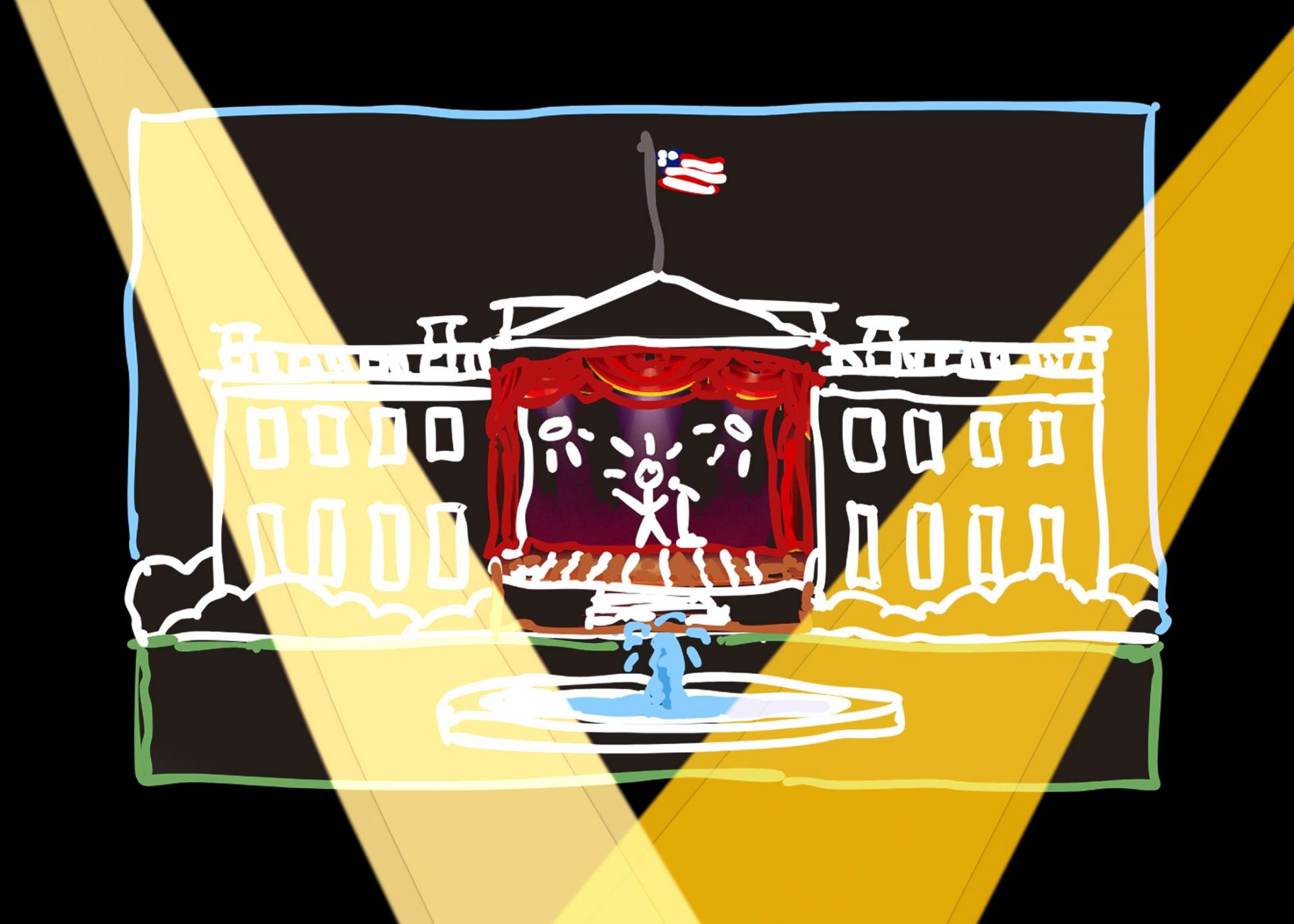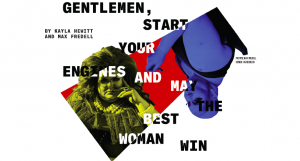While New York City is affectionately dubbed “The City That Never Sleeps” and Los Angeles is the cultural hub for celebrity sightings and detox juices, Washington, D.C. is known for its precarious balance between corporate sellouts and congressional aficionados.
Operating as the beating heart of American politics, D.C. cannot seem to think about anything other than its day job—especially when it comes to entertainment. While political life bleeding into the arts is nothing new—as Toni Morrison once said, “all good art is political”—there is a never-ending output of politically conscious performances that thrive in the nation’s capital. From Soft Power to POTUS: Or, Behind Every Great Dumbass Are Seven Women Trying to Keep Him Alive, political satire is the secret ingredient to critical acclaim in the District.
While D.C. is known for its political nature, its professional culture often overshadows its concurrent status as a stronghold for the arts. The bustling, politically in-tune D.C. theater scene easily rivals those seen in Chicago and Los Angeles in terms of its quality, diversity, and generation of original productions (Dear Evan Hansen and Come From Away are just two notable examples of Broadway darlings with D.C. roots). Though the buttoned-up and costume-donning sides of D.C. seemingly operate parallel to one another, in reality, local creatives are perpetually in conversation with the happenings on Capitol Hill.
Rather than telling these tales in a straightforward, earnest fashion directly reflecting their severity, satire has become a more common approach to on-stage political commentary. But having a front row seat to the chaos of modern American politics has been somewhat of a double-edged sword: we are equally more enraptured and more jaded. Perhaps laughter is not the best medicine in the long run, but it’s certainly one that’s soothing us for the time being.
Last year, one political satire that took the District by storm was Arena Stage’s production of POTUS. Despite debuting on Broadway, Selina Fillinger’s play is tailor-made for D.C. Set at 1600 Pennsylvania Avenue, just two miles from Arena Stage, POTUS peeks behind the curtain into a riotous day in the lives of female White House staffers navigating a PR disaster, courtesy of their calamitous commander-in-chief. Heavily inspired by the Trump administration, this farcical portrayal of the presidency resonated with D.C. audiences, snagging five nominations at Theatre Washington’s Helen Hayes Awards this past year.
Another one of D.C.’s most recent entertainment successes is Soft Power, which has received praise for its unabashed cultural critique. A collaboration between David Henry Hwang and Jeanine Tesori, Soft Power is a play-within-a-play which details playwright DHH (Steven Eng) experiencing a hallucinatory episode incited by an unknown individual stabbing him. In it, producer Xūe Xíng (Daniel May) journeys to a stereotyped 2016 America with Hillary Clinton (Grace Yoo) leading a dance number inside a McDonald’s with enormous burgers and red, white, and blue littering the set.
Soft Power’s, well…power, lies in its rather poignant caricature of American culture, which plays into the notion that all Americans are part of the gun-toting, MAGA crusade against communities of color. Amplified by an all Asian American cast, the absurdity of Americana is realized; conceptual “outsiders” portray the most outlandish—yet perhaps the most quintessential—aspects of American culture, forcing the audience to think about their complicity in the “othering” embedded in everyday life in the United States.
“At the core of Soft Power is David Henry Hwang’s personal experience and question: does American democracy work? Does it work for me, for people of color, and for immigrants?” director Ethan Heard said in an interview with the Voice.
When Soft Power broke into the D.C. theater landscape, it advertised itself as a “live-action political cartoon.” Though intentionally constructed as a critique meant to spark self-reflection, the show places the comedic onus mainly on conservative, white, and low-income Americans. Portraying them as gun worshippers and McDonald’s regulars, Soft Power does not hide its disdain for the people believed to embody the worst parts of American politics. While art should criticize schools of political thought—including modern-day conservatism—assigning culpability to individuals does not fully acknowledge that Americans are products of an environment that requires severe rehabilitation. Thus, the following question arises: what does it say about D.C. political players to laugh at those who feel conservatism is their only avenue for autonomy?
Speaking of laughing in the face of tragedy, Folger Theatre is currently showing Romeo and Juliet with a timely twist—the Montagues are Democrats and the Capulets are Republicans. In Raymond O. Caldwell’s adaptation, it is not “fair Verona” where we lay our scene: it’s Washington, D.C. in the middle of election season. Thankfully, Caldwell’s rendition avoids any likeness to Purple Hearts (2022); complete with unforgettable performances from leads Cole Taylor and Caro Reyes Rivera, the show embraces its political backdrop without compromising the original’s integrity. However, whenever political references arise within the script, these moments are almost always played for laughs. For starters, as theatergoers trickle into the theater, Caldwell establishes the mounting Montague-Capulet tensions with a series of comical, pre-filmed political advertisements. As modern lingo clashes against Shakespeare’s hallmark iambic pentameter, so do these moments of brevity contrast the show’s tragedy. Through these jarring juxtapositions, Caldwell illuminates the disorienting treachery of our modern two-party system. Jokes aside, what does it mean that the most commonly-cited feud in literary history can now be credibly mapped onto the partisan divides within our nation?
With election season in full swing, D.C. is buzzing with tension and enthusiasm all at once. Perhaps it is unsurprising that D.C. residents rushed to Soft Power and are currently flocking to Folger’s reimagined Romeo and Juliet; people want entertainment that pokes fun at their largest stressors.
Acting as an escape for the hundreds of staffers knelt before the harsh hand of bureaucracy, satirized depictions of politics bring levity to those with the closest proximity to “the room where it happens.” Though levity is needed, these political comedies often toe the line between laughing at bureaucracy and at those subject to it. Regardless, each of these productions serves as a temperature check of the political attitudes of the present moment—right now, it seems like people can do nothing but laugh.






